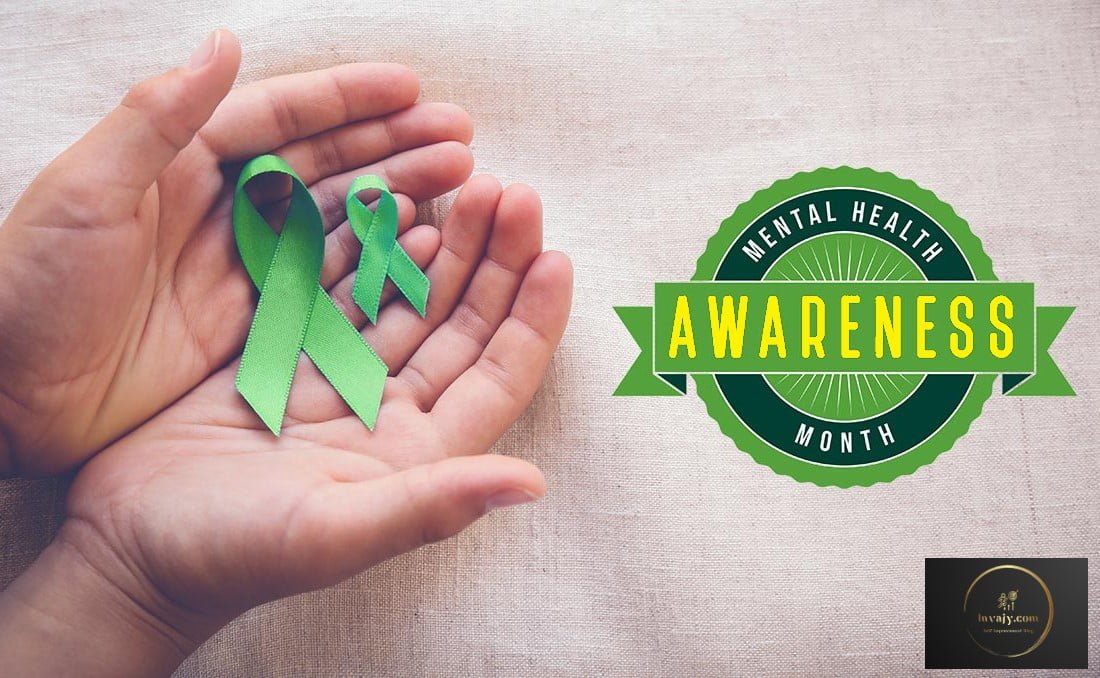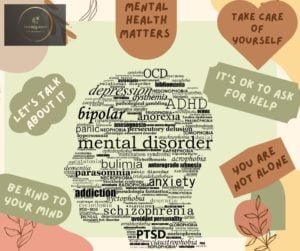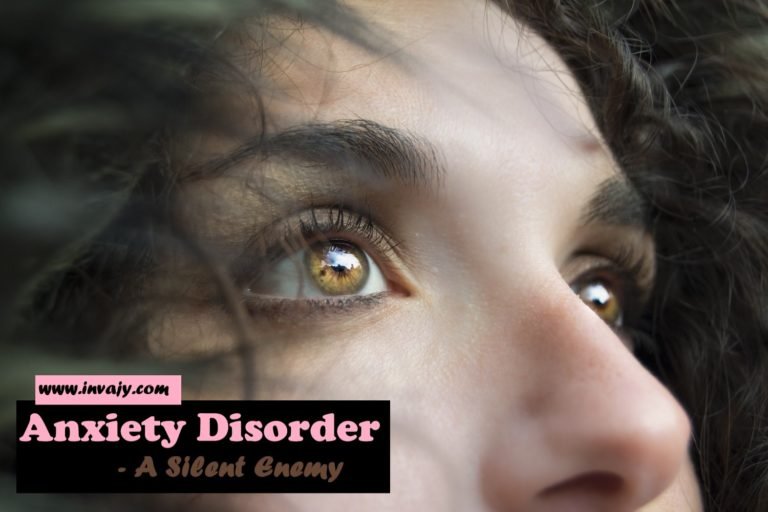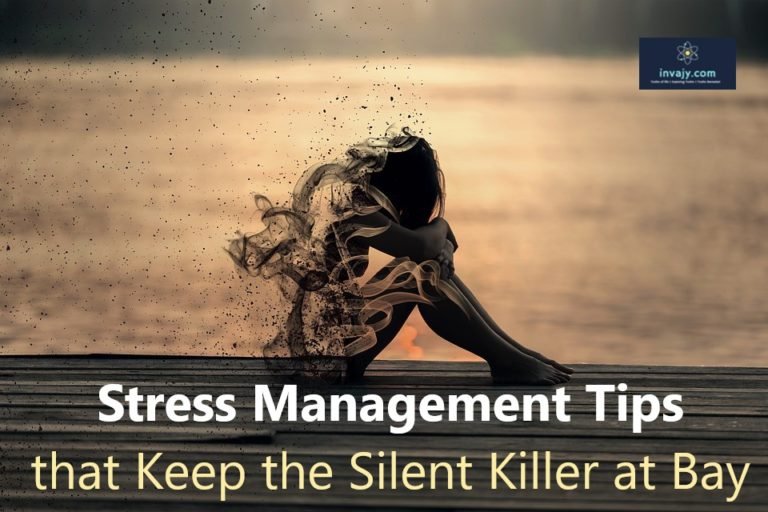May is the Time for Mental Health Awareness
Raise awareness and support during Mental Health Awareness Month. Discover impactful ways to educate, advocate, and promote mental health, fostering a community of understanding and support.

Mental health is an essential component of overall health and wellbeing. It refers to a person’s emotional, psychological, and social well-being. It affects how we think, feel, and behave, and can impact how we cope with stress, relate to others, and make decisions. There are many different types of mental health conditions that affect Americans, including anxiety disorders, depression, bipolar disorder, schizophrenia, eating disorders, and substance abuse disorders. These conditions can range from mild to severe and can have a significant impact on a person’s daily life.
Barriers Preventing Access to Mental Health Treatment
Unfortunately, there are many barriers that prevent individuals from accessing necessary mental health treatment and support. Such barriers include stigma, lack of access to care, lack of insurance or inadequate coverage, limited availability of mental health services in certain areas, or a shortage of mental health providers. Despite these barriers, there are many organizations and advocates working to improve mental health in America. There has been a growing focus on mental health awareness, with efforts to reduce stigma and promote access to care. Many states and communities have also implemented mental health programs and initiatives to provide support to those in need. One of such initiatives is observance of the month of May as Mental Health Awareness Month.
Also Read: Ideas to Celebrate Mental Health Awareness Month
Mental Health Awareness Month
Mental Health Awareness Month began in the United States in 1949 and was started by the Mental Health America organization. This is a time to raise awareness about the importance of mental health and to promote strategies that can help individuals and communities address mental health concerns. Mental Health Awareness Month provides an opportunity to educate individuals and communities about the signs and symptoms of mental health conditions and the importance of seeking help. It’s important to remember that mental health conditions are treatable, and there are many effective treatments available, including therapy, medication, and self-care strategies.
Mental health is an important issue in America, as it affects millions of individuals and families across the country. According to the National Alliance on Mental Illness (NAMI), one in five adults in the United States experiences mental illness each year. This means that mental health conditions are very common and can affect anyone, regardless of age, gender, race, or socioeconomic status.

Also Read : Ideas To Build Mental Health Literacy
There are many ways to promote mental health awareness during Mental Health Awareness Month. This includes sharing information about mental health on social media, hosting events and workshops focused on mental health, and participating in mental health advocacy efforts.
Individuals can also take steps to prioritize their mental health. This includes engaging in self-care activities like exercise, meditation, and journaling, seeking therapy or counseling if needed, and talking openly with friends and family about mental health concerns.
“Awareness of mental health issues is still a biggest challenge across the globe.” ~ Invajy
Significance of Mental Health Awareness Month
The significance of Mental Health Awareness Month can be seen in a number of ways:
Raising Awareness
Mental Health Awareness Month is an opportunity to educate individuals and communities about mental health conditions, their signs and symptoms, and the importance of seeking help. By increasing awareness, we can help reduce the stigma associated with mental health conditions and encourage people to seek treatment. It’s essential to have open and honest conversations about mental health. This means talking about mental health conditions as you would any other health condition, and treating individuals with mental health conditions with the same respect and compassion that you would give to anyone else.

Also Read : Mental health first aid to help someone with mental illness
Promoting Self-Care
Mental Health Awareness Month encourages individuals to prioritize their mental health and engage in self-care activities. This can include exercise, meditation, and therapy, among other things. By promoting self-care, we can help individuals build resilience and coping skills that can improve their overall mental health and wellbeing.
Advocating for Mental Health
Mental Health Awareness Month is a time for mental health advocates to come together and raise their voices in support of mental health. By advocating for policies and programs that support mental health, we can help ensure that everyone has access to the care and resources they need to thrive.
Supporting those affected by Mental Health Conditions
Mental Health Awareness Month is also an opportunity to show support for those affected by mental health conditions. This can include offering a listening ear, providing resources and information, or participating in mental health advocacy efforts. By supporting those affected by mental health conditions, we can help reduce the isolation and stigma that often accompanies mental illness.
Also Read: Mental Health Awareness Calendar
Signs and Symptoms of Mental Illness
Signs and symptoms of mental illness can vary, depending on the disorder, circumstances and other factors. Mental illness symptoms can affect emotions, thoughts and behaviors.
Examples of signs and symptoms include:
- Feeling sad or down
- Confused thinking or reduced ability to concentrate
- Excessive fears or worries, or extreme feelings of guilt
- Extreme mood changes of highs and lows
- Detachment from reality (delusions), paranoia or hallucinations
- Withdrawal from friends and activities
- Feeling exhaustive, hopeless or helpless
- Negative feelings i.e. feeling numb or like nothing matters
- Significant tiredness, low energy or problems sleeping
- Problems with alcohol or drug use
- Major changes in eating habits
- Sex drive changes
- Apathy i.e loss of initiative or desire to participate in any activity
- Inability to cope with daily problems or stress
- Trouble understanding and relating to situations and to people
- Excessive anger, hostility or violence
- Suicidal thinking
Sometimes symptoms of a mental health disorder appear as physical problems, such as stomach pain, back pain, headaches, or other unexplained aches and pains.
In case of persistent presence of above several symptoms at one time and changes in your feeling, emotions and behavior, mental health professional help should be seek should and issues to be discussed with him/her.
Mental Health Disorders and Issues
Here are some of the articles to increase your awareness about mental health disorders and issues. You may also like to explore our Mental Health Section.

- Schizophrenia
- Dual Diagnosis
- Emotional Abuse
- Substance Abuse
- Relational Trauma
- Childhood Trauma
- Binge Eating Disorder (BED)
- Borderline Personality Disorder (BPD)
- Anhedonia
- Xenophobia
- Depression
- Bipolar Disorder
- Panic Disorder
- Attention Deficit Hyperactivity Disorder (ADHD)
- Somatization or Somatic Symptom Disorder (SSD)
- Obsessive-Compulsive Disorder (OCD)
- Postpartum Depression (PPD)
- PTSD
- Inferiority Complex
- Imposter Syndrom
- Anxiety Disorder
- Gaslighting
- Loneliness
- Rumination
- Brain Fog
Mental Health Treatments
Mental health treatment involves the use of various interventions to help individuals who are struggling with mental health issues. There are many different treatment options available. There is no treatment that works for everyone – individuals can chose the treatment, or combination of treatments, that works best for him/her in consultation with professional mental health practitioner. The type of treatment recommended will depend on the specific condition and the severity of the symptoms.
Psychotherapy
Psychotherapy is the therapeutic treatment of mental illness. This type of treatment involves talking with a trained mental health professional. Psychotherapy explores thoughts, feelings, and behaviors, and seeks to improve an individual’s well-being. Psychotherapy paired with medication is the most effective way to promote recovery. There are many types of psychotherapy, including Cognitive Behavioral Therapy (CBT), Psychodynamic Therapy, Exposure Therapy, Dialectical Behavior Therapy, and Interpersonal Therapy etc.

Also Read : Mental Hygiene for better mental health
Medication
Certain mental health conditions can be effectively treated with medication. Medication does not outright cure mental illness. However, it may help with the management of symptoms. Psychiatrists or other medical professionals can prescribe medications to alleviate symptoms of depression, anxiety, bipolar disorder, schizophrenia, and other mental health disorders. Medication paired with psychotherapy is the most effective way to promote recovery.
Hospitalization
In a minority of cases, hospitalization may be necessary so that an individual can be closely monitored, accurately diagnosed or have medications adjusted when his or her mental illness temporarily worsens. It provides intensive treatment for severe mental health conditions, such as suicidal thoughts, severe depression, or psychosis.
Support Group
A support group is a group meeting where members guide each other towards the shared goal of recovery. Support groups can provide a safe and supportive environment for individuals who are struggling with mental health issues. These can be in your locality or even online on internet. Support groups are often comprised of nonprofessionals, but peers that have suffered from similar experiences. They can offer peer support, practical advice, and a sense of community.
Lifestyle changes
Simple lifestyle changes, such as regular exercise, a healthy diet, and stress-management techniques, can be effective in improving mental health. Additionally, certain complementary and alternative therapies, such as mindfulness meditation or yoga, can also help to improve mental health.
Self Help Plan
A self-help plan is a unique health plan where an individual addresses his or her condition by implementing strategies that promote wellness. Self-help plans may involve addressing wellness, recovery, triggers or warning signs.
Peer Support
Peer Support refers to receiving help from individuals who have suffered from similar experiences.
Wrapping Up!
In short, the significance of Mental Health Awareness Month lies in its ability to raise awareness, promote self-care, advocate for mental health, and support those affected by mental health conditions. By working together to promote mental health awareness, we can help ensure that everyone has the resources and support they need to live healthy, fulfilling lives.







Well Written